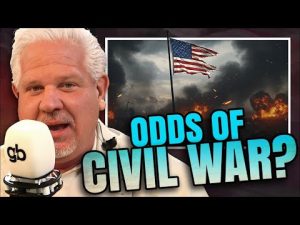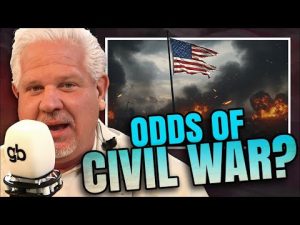In the unfolding tapestry of international relations, President Trump seems to have taken his own inventive brush to the canvas, proposing that China could play the surprising role of peacemaker in the Russia-Ukraine conflict. In a move that might raise more than a few eyebrows, the former President hinted at the potential for China to use its influence over Russia to help bring an end to the war that trudges into its fourth year. While one might wonder if this is the diplomatic equivalent of asking the wolf to guard the henhouse, Trump’s strategy could offer a fresh perspective on how to untangle this geopolitical knot.
Meanwhile, President Vladimir Putin and his generals have been on their own strategic display, claiming a successful test of a nuclear-powered cruise missile. Of course, they seem rather enthusiastic to show off their new toy to the rest of the world. In a somewhat predictable chest-thumping move, Russia wants its nuclear capabilities to be front and center. However, testing such missiles instead of focusing on ending what has been a long and bloody conflict seems more like a diversionary tactic rather than any genuine interest in diplomacy.
China and Russia boast a “No Limit Strategic Partnership,” each harboring their own ambitions and global objectives. This relationship is built on mutual benefits: Russia supplies hydrocarbons to China, while China offers dual-use technology to aid Russia’s military endeavors. And let’s not ignore their joint desire to put a damper on the United States’ overseas influence, particularly in the Pacific. In this complex web, President Trump’s remarks could be more about exposing these alliances and less about expecting China to turn into a mediator overnight.
At the same time, Trump embarked on a high-profile trip to Japan, where he was greeted by the Emperor. This gesture of goodwill shows the strength of American-Japanese relations and underscores the necessity of robust alliances in the Pacific to balance against China’s regional ambitions. Trump’s impending meeting with Chinese President Xi Jinping later adds another layer to this diplomatic tour, underlining how essential it is for the U.S. to maintain its strategic foothold in Asian politics.
In light of these maneuvers, the big question remains: how practical is it to anticipate assistance from China, a nation closely interwoven with Russia in this geopolitical puzzle? Experts suggest that the circle of aligning adversaries into allies may be hard to square. By highlighting China’s tacit support of Russia, there’s a possibility to nudge European nations closer to a more pragmatic stance on China, revealing that economic ties often mask deeper strategic rivalries.
In the face of these complex relationships, Japan continues to view the United States as its primary ally and security guarantor. As global dynamics shift and swirl, rolling out the red carpet for Trump isn’t just ceremony—it’s a reaffirmation of trust and shared objectives against the backdrop of unpredictable geopolitical theater.







